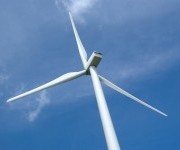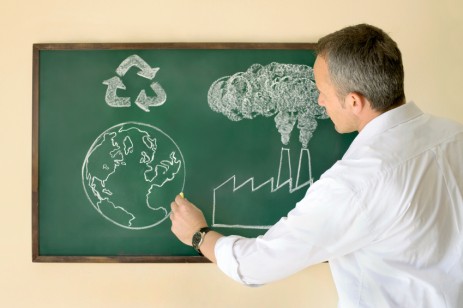Q. Dear Umbra,
I know it’s a little early, but I had this great idea for a New Year’s resolution. Every month in 2010, I pick a certain eco-area of my life and focus on that for a whole month. So far I have: reduce energy consumption; reduce water consumption; reduce material waste; reuse; recycle; volunteerism/activism; eating local. Finally, I think December will be trying to use everything I’ve learned and put it all together cohesively. However, my list isn’t full, and I’m out of ideas. Do you have any suggestions?
Happy Hippie
Alexandria, Va.
A. Dearest HH,
It’s never too early to make good resolutions! I bet you are also stocking up on organic, fair-trade chocolate for Valentine’s Day. Three cheers for organization.
Personally, I think a better resolution might be to try to spend the year really, seriously improving on one or two of these areas, rather than flitting about from topic to topic. As you well know, you cannot just “reuse” for a month and be done with it. However, I admire the somewhat wackadoodle structure of your list, and I think you’ve made a great start on it. You have seven good categories, plus your December free-for-all. So here are four more ideas from me to round out your year: go carless for a month; serve as a public information officer on climate change for a month, helping your friends and family and perhaps strangers understand the issue; spend a month weatherizing your house; and spend a month without the TV on. This last step will help you not only reduce your energy consumption, it will help you reconnect with the real world. You could use the time instead to read deeply on the eco-topic of your choice, or to brush up on green classics.
Readers, any other ideas for HH? Or resolutions of your own? Please share in the comments section below.
Resolvedly,
Umbra
Q. Dear Umbra,
I was recently appalled when my 9-year-old son came home from school and related that his teacher had denounced human-caused climate change to the class. I immediately searched for the Grist link I once saw that listed scientists (and academic institutions) who believe otherwise. Unfortunately that link appears to be missing. If not for Grist, where can I find such a list? How should I deal with this situation?
A very worried mother stewing in the climate change pot,
Cate J.
Whitefish, Mont.
A. Dearest Cate,
 Just the facts … please?This really boils my butter. Let me direct you and others to our thorough series on “How to Talk to a Climate Skeptic,” which refutes various attempts to debunk the science — it includes a list of some of the scientific organizations that agree about anthropogenic climate change. I’m not sure if it’s the list you had in mind, but it should help. And here is a letter sent in late October to every U.S. senator from the country’s leading scientific organizations, confirming that research has shown climate change is primarily human caused.
Just the facts … please?This really boils my butter. Let me direct you and others to our thorough series on “How to Talk to a Climate Skeptic,” which refutes various attempts to debunk the science — it includes a list of some of the scientific organizations that agree about anthropogenic climate change. I’m not sure if it’s the list you had in mind, but it should help. And here is a letter sent in late October to every U.S. senator from the country’s leading scientific organizations, confirming that research has shown climate change is primarily human caused.
You might also point your child’s teacher to the U.S. EPA’s resource page for students and educators, or print out the agency’s climate FAQ. It is called, notably, “Back to Basics.” Because at this point in time, this is basic information: our current climate problem is caused by human activity.
Does this teacher also suggest that gravity may be false and the moon is made of cheese? If he or she insists on continuing to plant seeds of doubt in young minds about scientifically solid information, I would not hesitate to take your concerns to a higher authority.
Factily,
Umbra
Q. Dear Umbra,
I am looking for advice about purchasing the best low-flow and/or dual-flush toilet to replace my current one, which I’ve been told needs a complete replacement due to its age and inability to flush sufficiently. I’ve heard some use a very low amount of water, but that can often translate into a lack of, well, doing their duty. I’m having a hard time navigating all the brands and claims to fame. Help me wash it all away!
Erica
Portland, Ore.
A. Dearest Erica,
This notion that low-flow toilets are somehow not powerful enough to do their duty lingers on, despite being largely false. It’s true that the first generation of low-flows lacked a little oomph, but at this point the major manufacturers have figured out how to keep things moving. And it’s worth making the switch: toilets can use up to 30 percent of all our household water. A low-flow toilet uses just 1.6 gallons per flush compared to an older model’s three or more gallons, while a high-efficiency model uses a measly 1.28 gpf. Dual-flush toilets, which are my favorite option but tend to be more expensive, usually use less than a gallon for liquid waste and about 1.6 for solid waste.
To be honest, I think if you identify your price range and go with one of the major manufacturers, you’ll be fine. But if you are really in the mood to dork out, the California Urban Water Conservation Council has done some extremely thorough “maximum performance” testing, and makes various PDFs available that sort the results by performance, by manufacturer, and so forth. The EPA also offers a list of high-efficiency toilets that have earned its WaterSense seal, as good an endorsement as we currently have. Good luck.
Whooshily,
Umbra
Q. Dear Umbra,
In your last column, you talked about what people can do in the weeks leading up to the Copenhagen summit. I wanted to share a site called www.hopenhagen.org that is working on that very issue. There is a useful Facebook application that is associated that has a myriad of actions for just that audience: change out a lightbulb, turn down your water heater, etc.! Is there any way you can write a bit about it in the next post in response to the question? Thanks!
Mary
Santa Cruz, Calif.
A. Dearest Mary,
I think you just have. Thank you for adding to our resources.
Hopily,
Umbra



